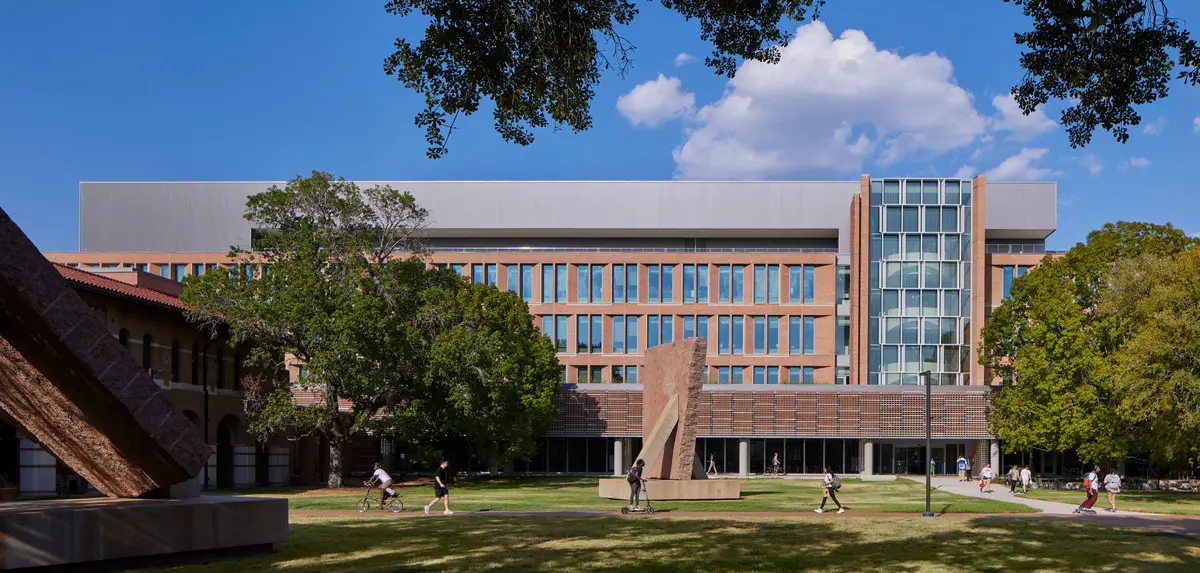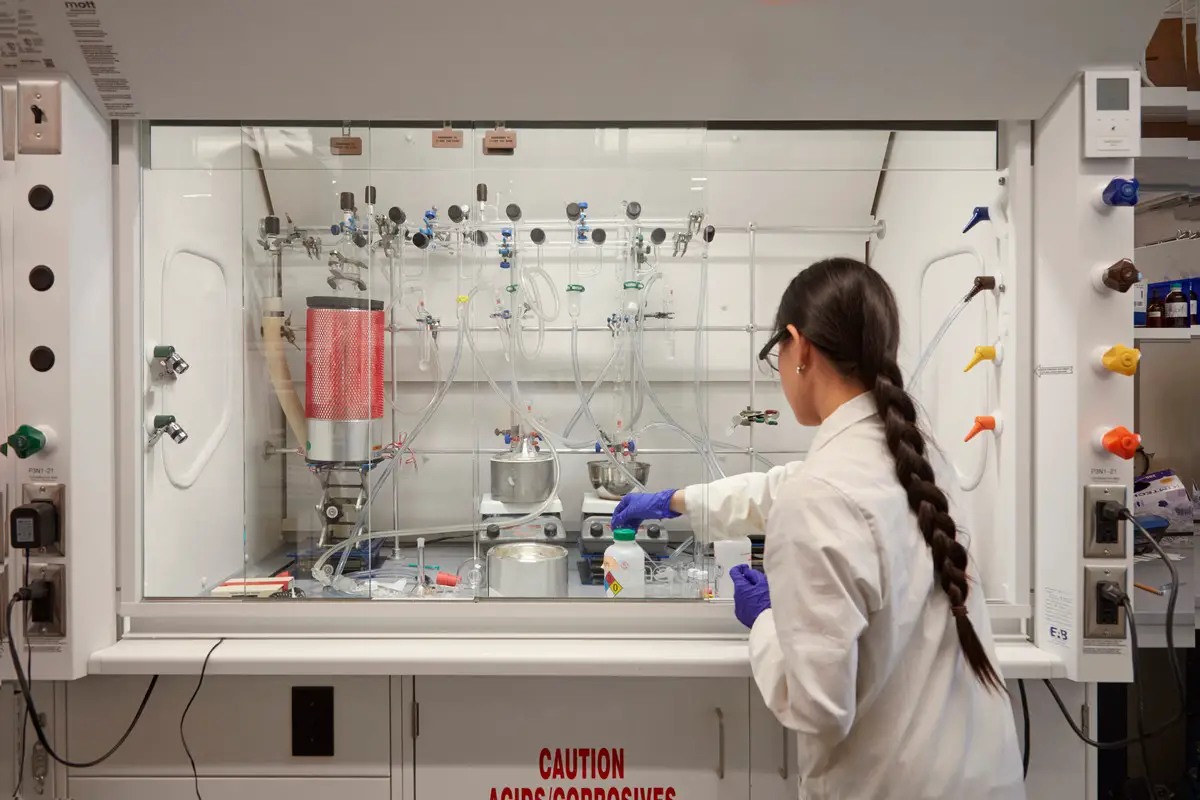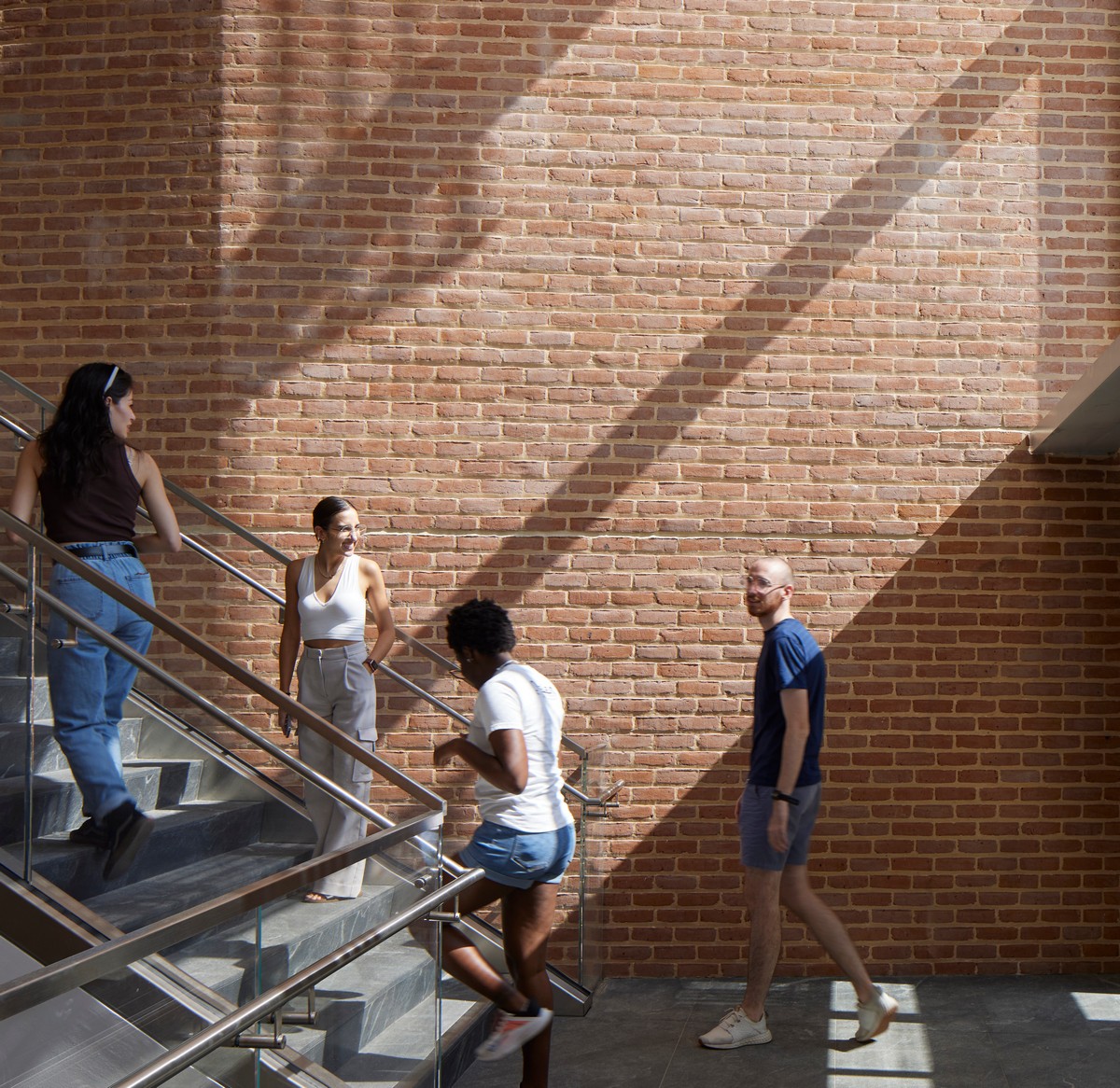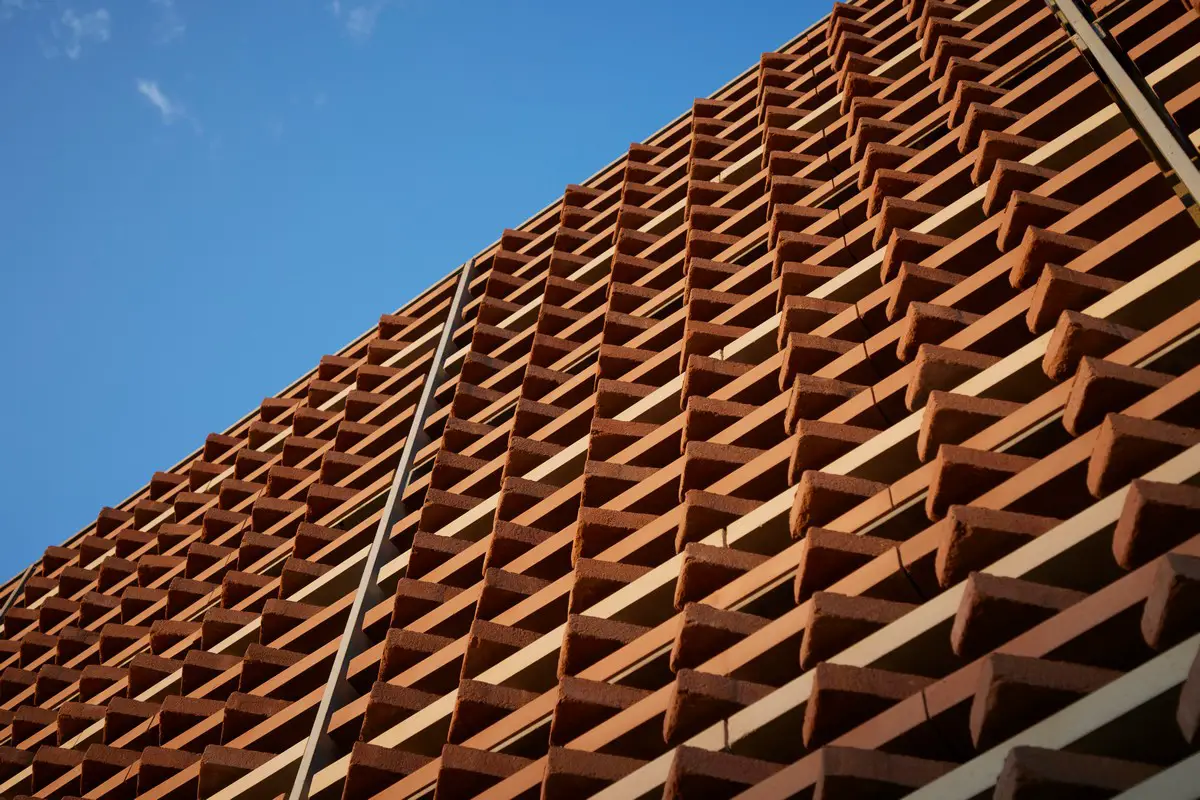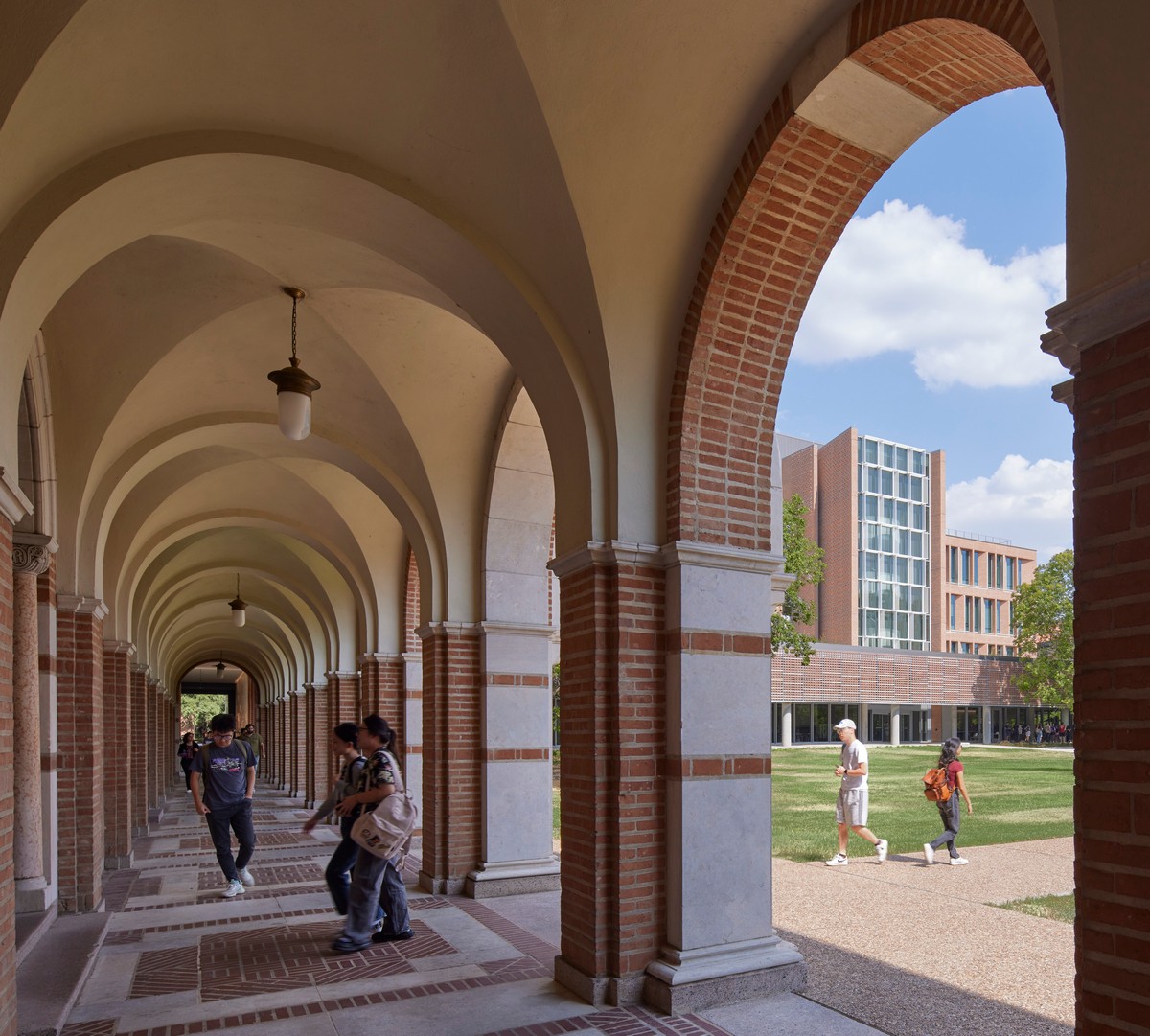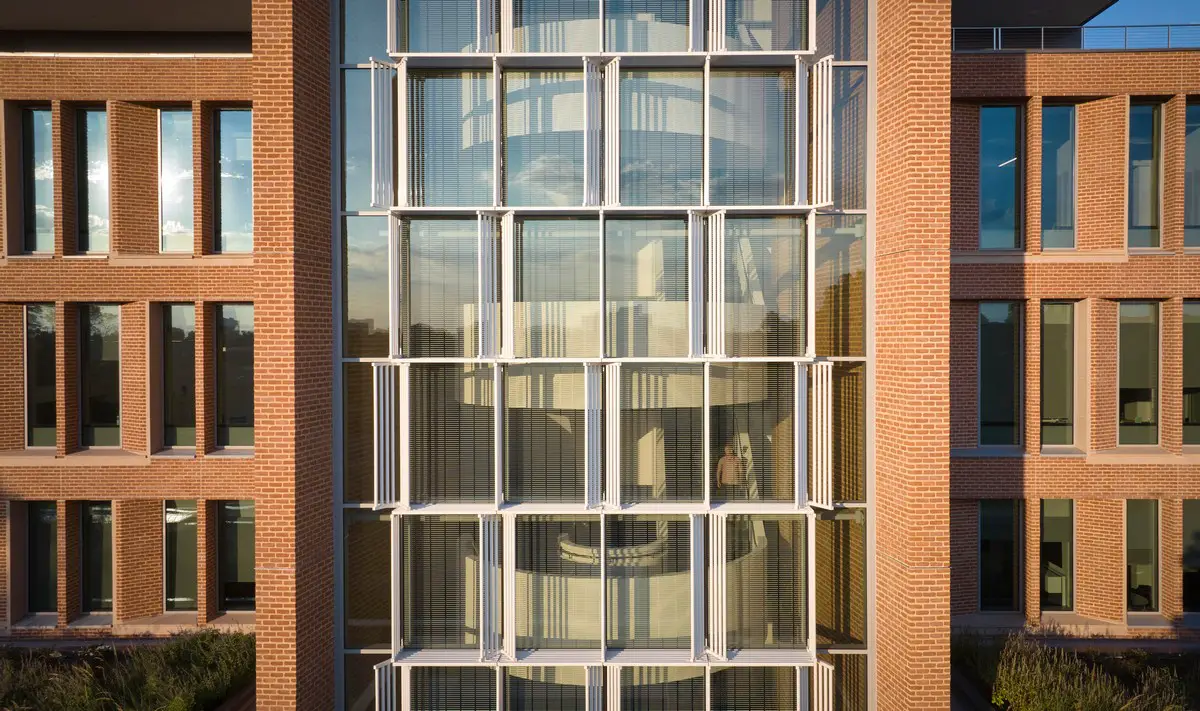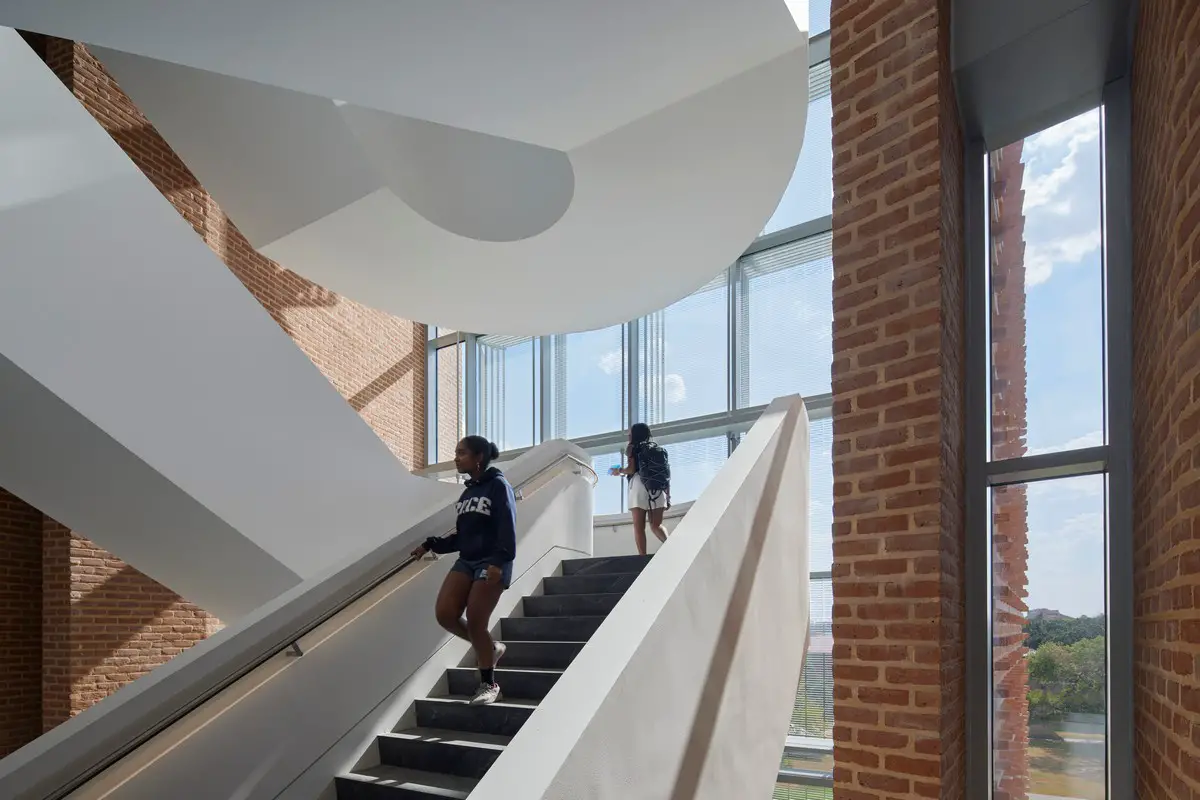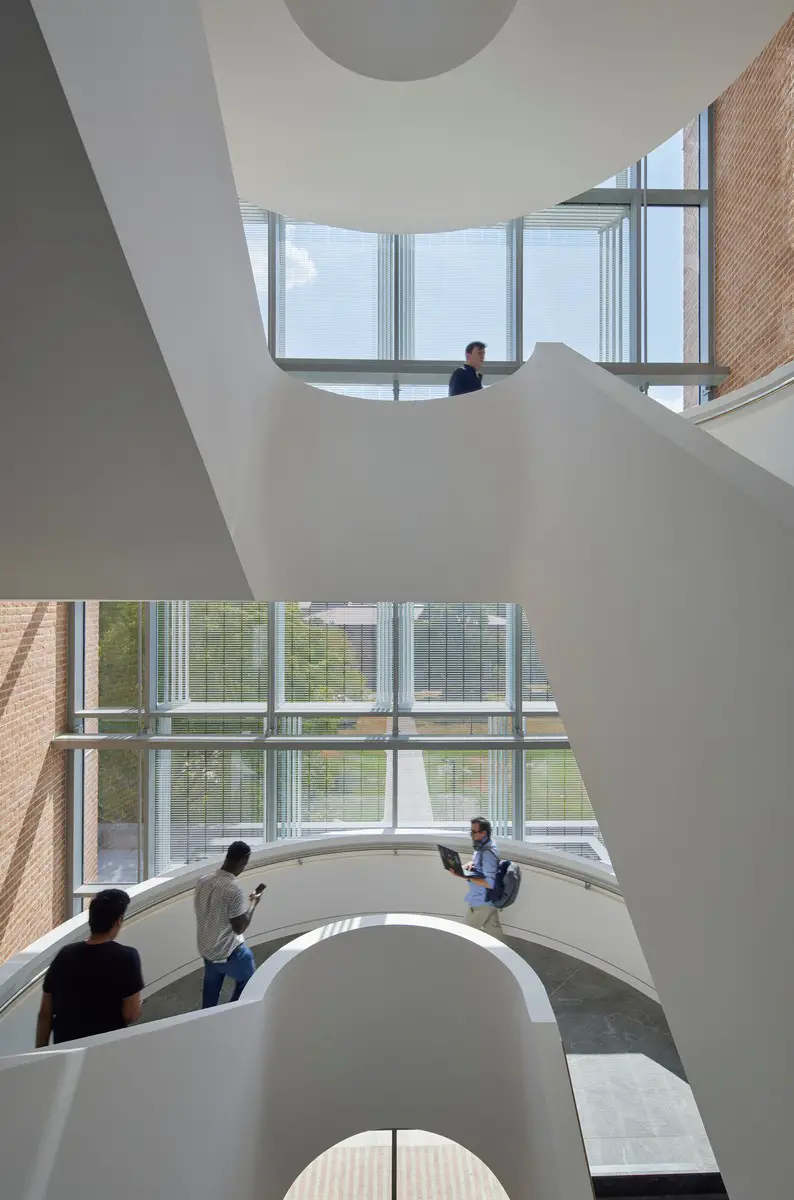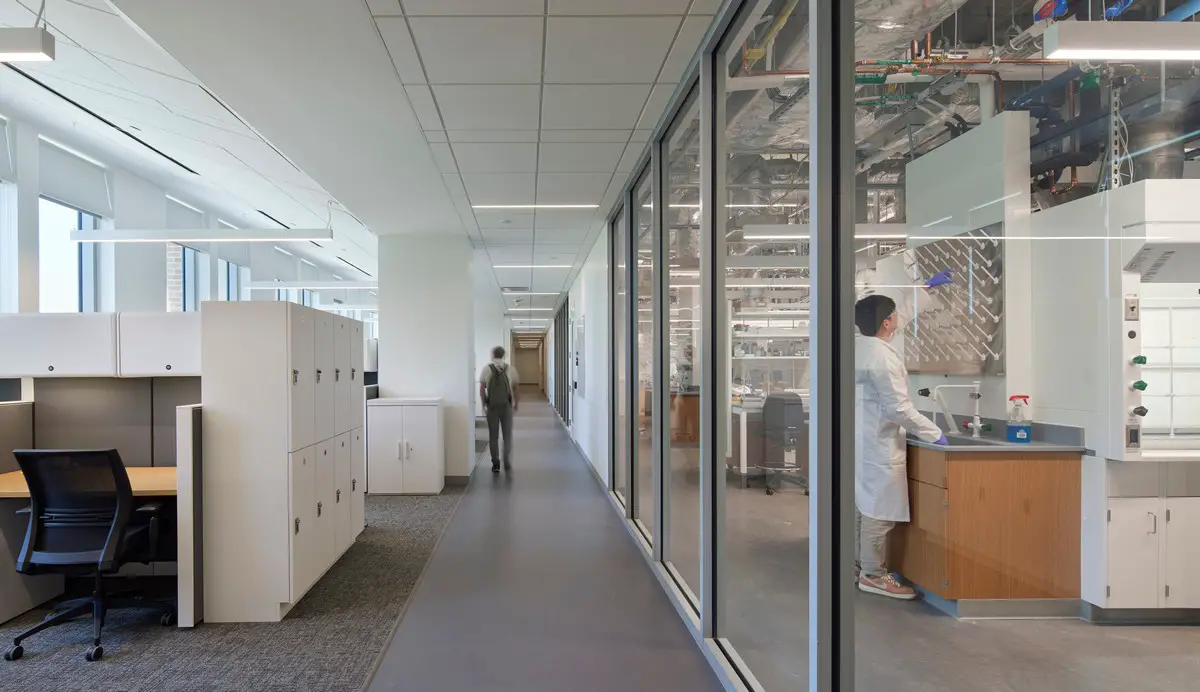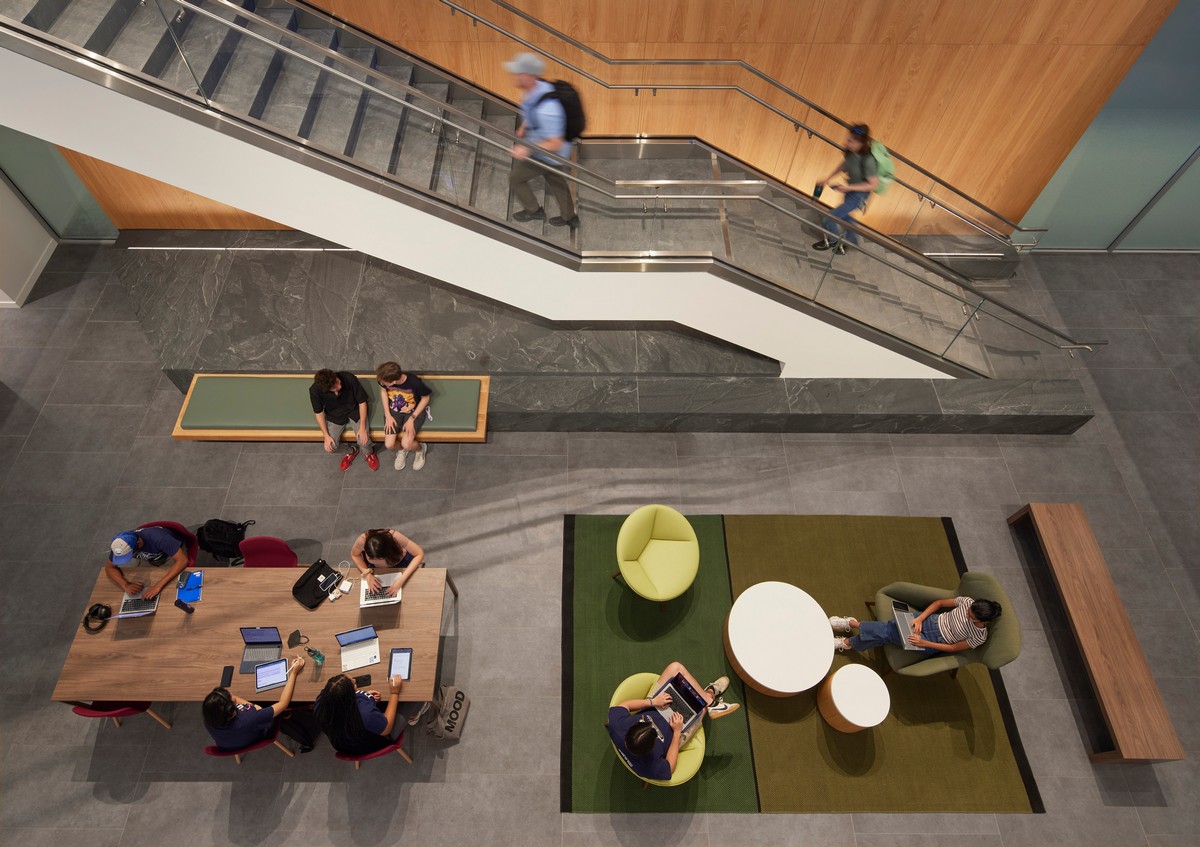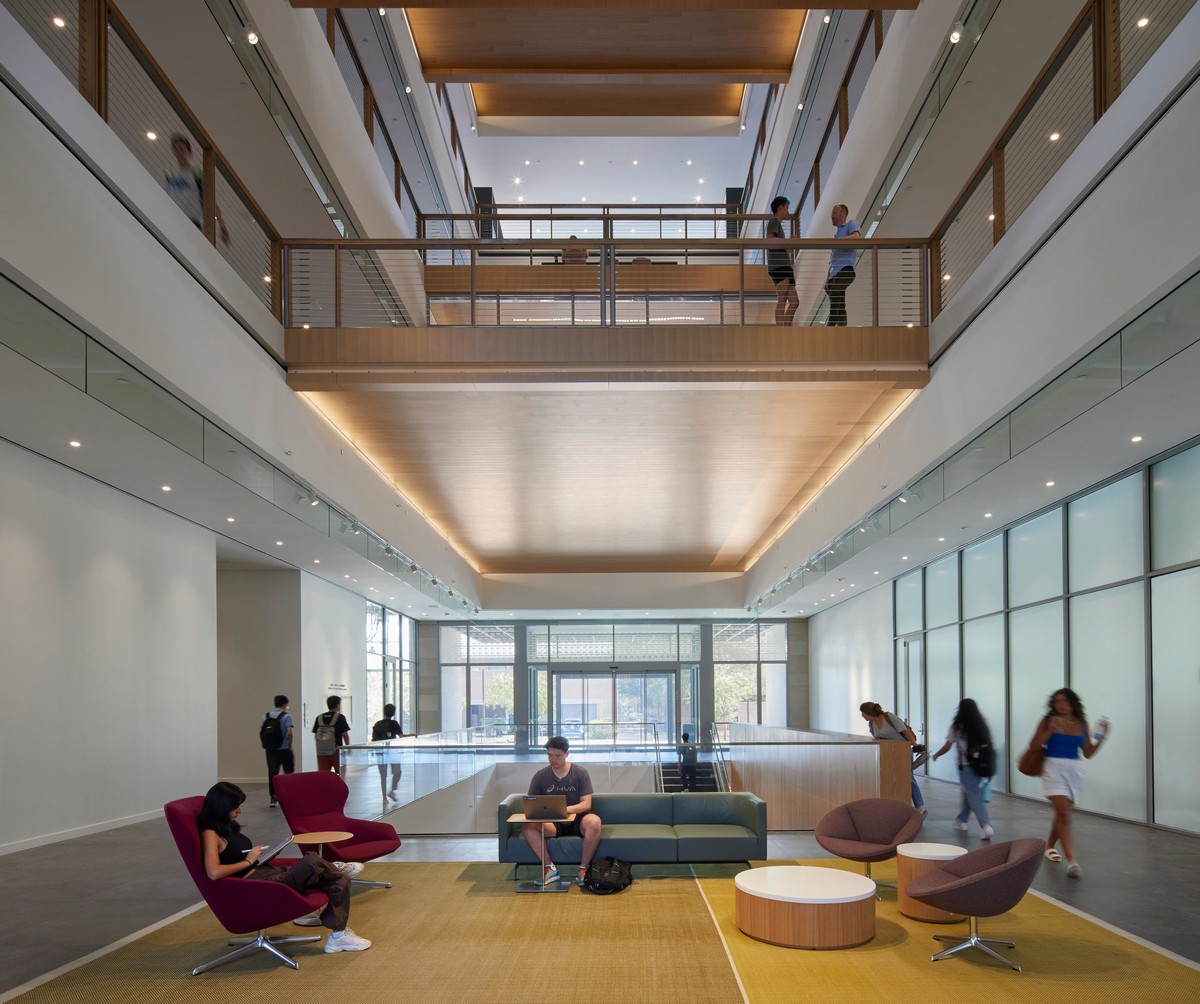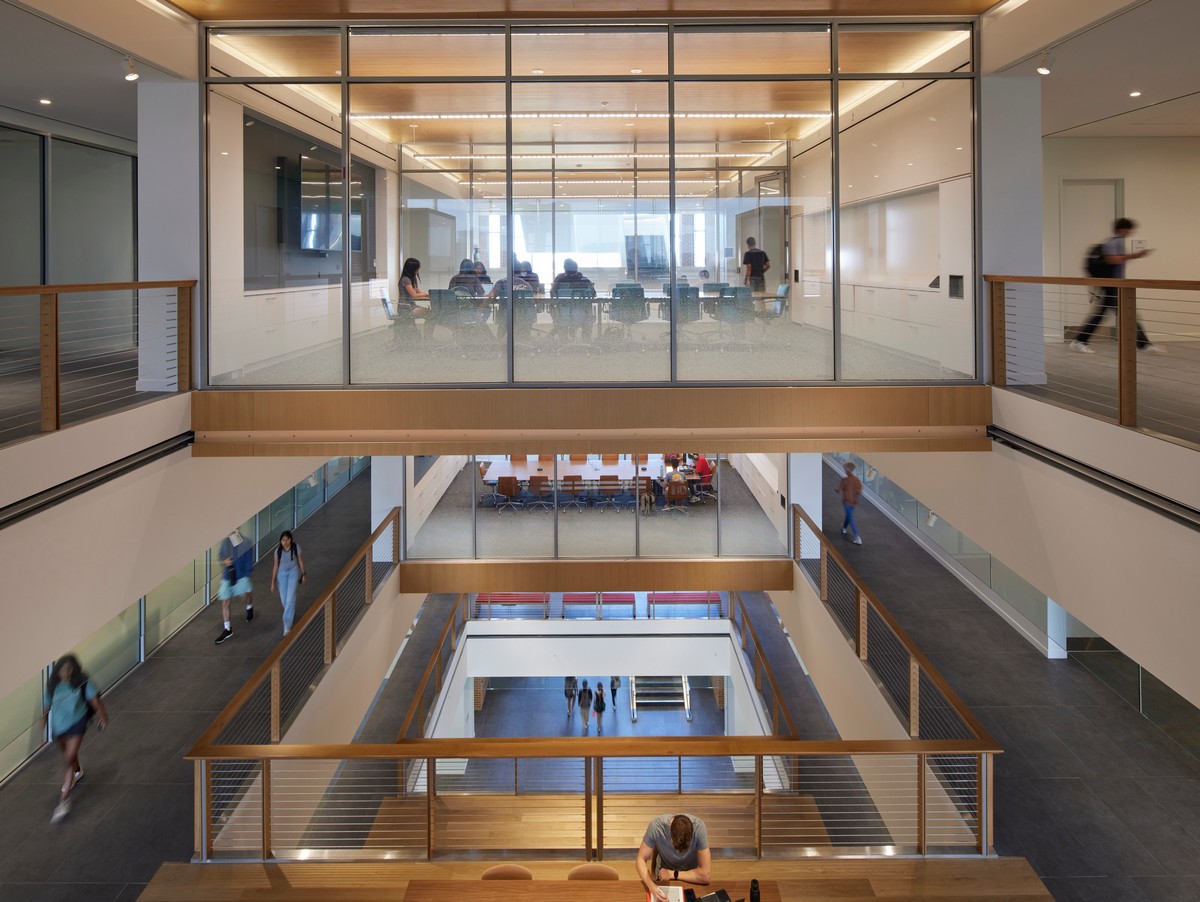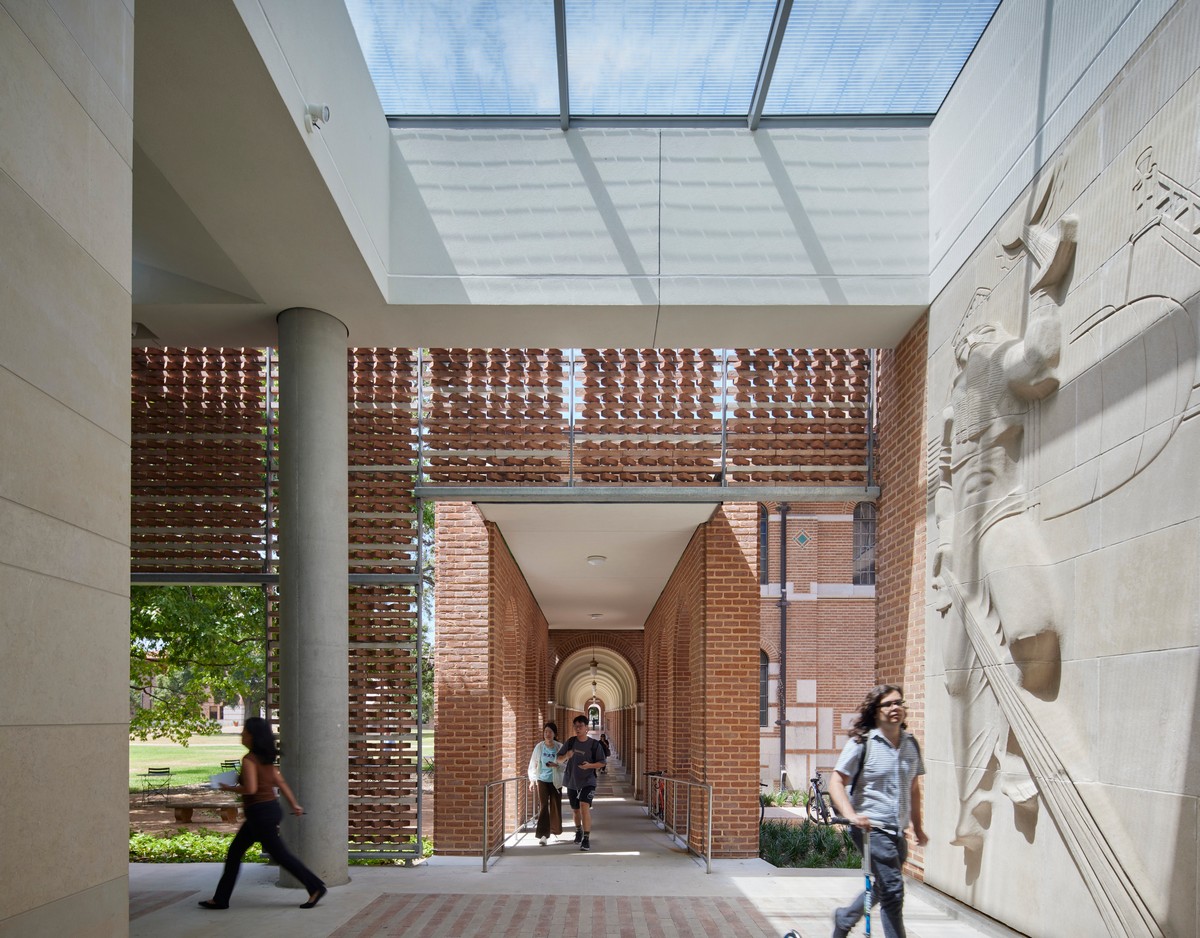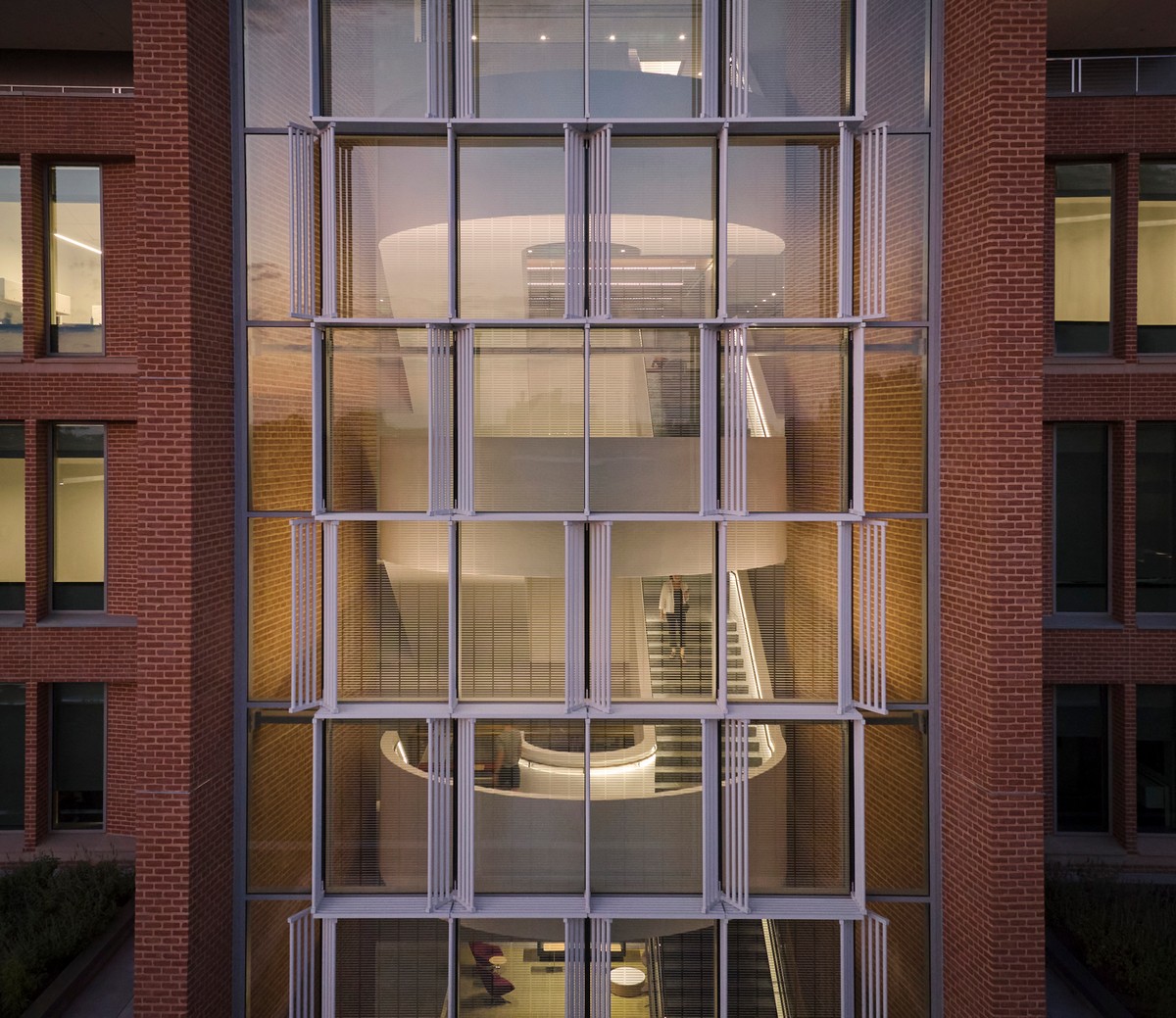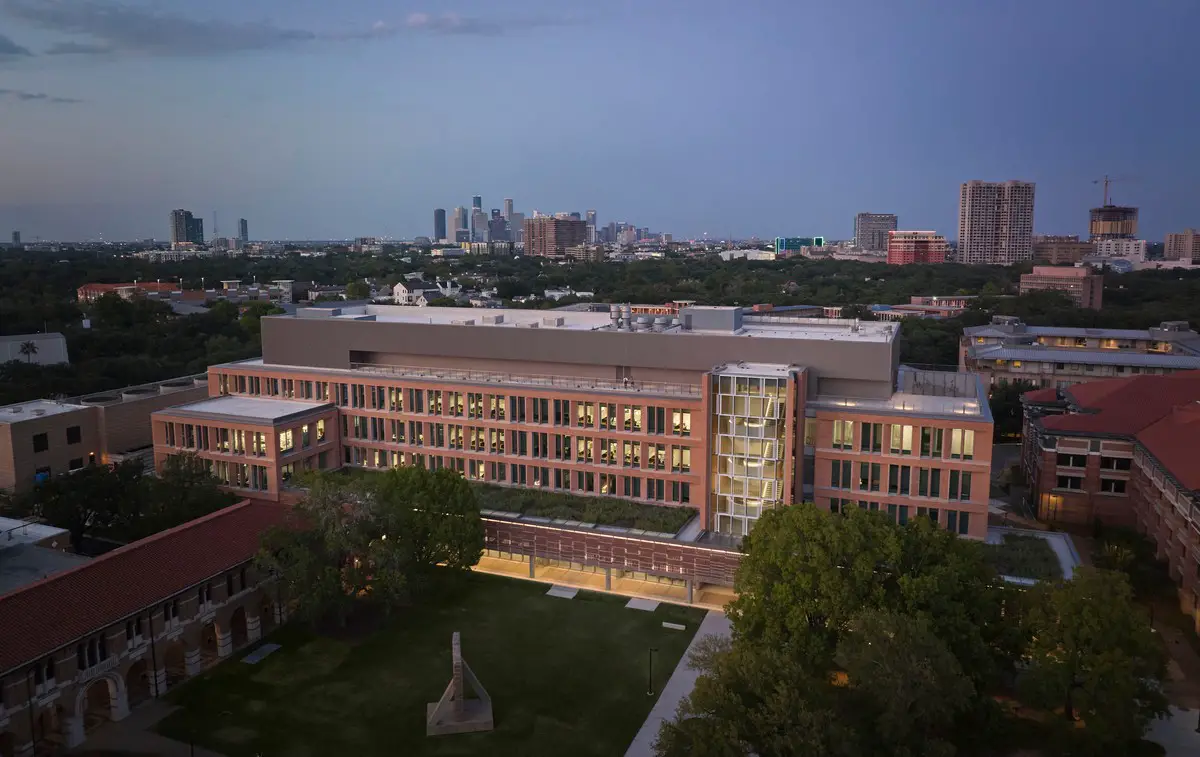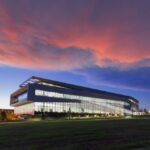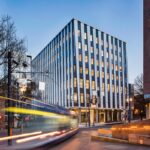The Ralph S O’Connor Building Houston, SOM Texas architecture design images, US Engineering and Science campus
The Ralph S. O’Connor Building in Houston
December 8, 2023
Design: SOM
Location: Houston, Texas, USA
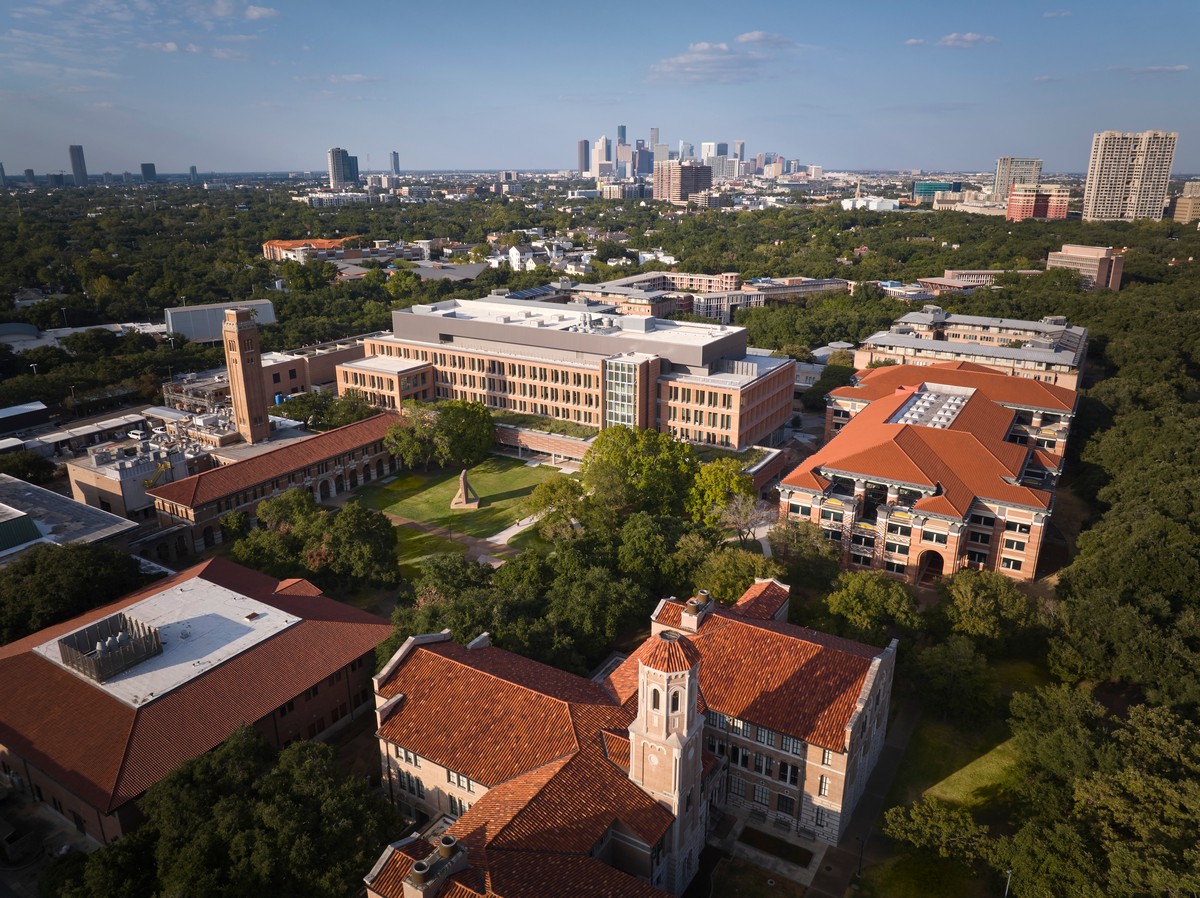
pictures from architecture studio
The Ralph S O’Connor Building, USA
The newest and largest research facility in Rice University’s historic core campus — the Ralph S. O’Connor Building for Engineering and Science is now open. The 250,000 square foot O’Connor Building provides students and researchers with technology-rich facilities that align with the University’s goal to stay at the forefront of scientific discovery and to recruit the country’s best scientific and engineering minds. Located on a 300-acre forested campus in Houston, Texas, Rice is consistently ranked among the nation’s top 20 universities by U.S. News & World Report and the O’Connor Building will only elevate this standing.
An epicenter for interdisciplinary collaboration, the new high-performance facility includes state-of-the-art laboratories, classrooms, offices, a cafe, as well as many interactive gathering spaces. A multi-purpose event space with an outdoor terrace sits at the top level with views of the campus and the Houston skyline.
“We looked beyond the boundaries of the building to transform a core location on this important, historic campus,” said SOM Design Principal Javier Arizmendi. “The design strikes a balance of historic and contemporary materials, leverages existing circulation pathways, and creates an energetic hub of social and scientific activity for the next generation of scholars and innovators.”
The design activates the adjacent Engineering Quad and extends the vitality of campus into the building, where a five-story central atrium creates a hub of activity, connecting to seminar rooms, break areas, and informal gathering spaces. A transparent glass facade at the atrium’s ground level showcases this activity to the campus at large. At the building’s main entrance, a cantilevered sculptural stair is framed by brick walls and a fritted glass wall.
The O’Connor Building was designed by SOM with a deliberate focus on fostering collaboration in four key research areas: advanced materials, quantum science and computing, urban research and innovation, and the energy transition. To promote this interaction, the stair tower and the central hub connect a series of stepped double-height collaboration areas on different levels. Intimate conference rooms and break areas with warm, natural materials provide further opportunities for informal learning and connection.
“At the heart of our campus, the Ralph S. O’Connor Building for Engineering and Science represents far more than mere bricks and mortar,” said Luay Nakhleh, William and Stephanie Sick Dean of Engineering, Professor of Computer Science and BioSciences at Rice University.
“Within these walls, brilliant minds from across the globe will converge to conduct groundbreaking research and develop innovations that solve some of society’s most urgent challenges. The breadth of research experiences provided to our students within this facility underscores our commitment to delivering exceptional engineering training that transcends traditional boundaries.”
Circulation through and around the building is encouraged, reinforcing the campus’s well established pedestrian arcade network. A robust art program incorporates new works from world-recognized artists and the iconic bas-relief sculpture Energy by sculptor William McVey that was preserved from the original Abercrombie Engineering building.
Maintaining the identifiable aesthetics of the historic campus, the facade of the O’Connor Building features a composition of brick and punched windows articulated by a series of angled brick pilasters and fins. The covered arcade along the western edge is shaded by a delicate brick and stone veil that modulates sunlight for thermal and visual comfort. The arcade veil is composed of alternating bands of brick and cast-stone modules, spaced apart with rotated bricks in between, allowing light to filter between the gaps.
A commitment to sustainability and reducing the building carbon footprint was achieved through both passive and active design strategies, including maximizing daylight, strategic placement of angled pilasters and vertical fins, and the use of skylights to soften the strong Texas sun. Thanks to these passive design strategies and an energy efficient HVAC and lighting system, the laboratories use 50 percent less energy than a comparable research space.
Designed by SOM, the O’Connor Building project team includes: Anslow Bryant Construction LTD; IMEG Corp.; Scientia Architects; Jacobs Engineering Group, Inc.; Walter P. Moore; OJB Landscape Architecture; Salter; Ulrich Diederich Design; Wylie; Edgett Williams Consulting Group; Loisos + Ubbelohde; Stanton Engineering Group, LLC; Ulrich Engineers, Inc.; and AEI.
Skidmore, Owings & Merrill (SOM)
SOM – https://www.som.com/ is a global practice of architects, designers, engineers, and planners, responsible for some of the world’s most technically and environmentally advanced buildings and significant public spaces. From a strategic regional plan to a single piece of furniture, SOM’s designs anticipate change in the way we live, work and communicate, and have brought lasting value to communities around the world.
The firm’s approach is highly collaborative, and its interdisciplinary team is engaged in a wide range of international projects, with creative studios based across the globe. SOM is a net zero emissions business. Read our Climate Action Report to learn more.
Rice University
Located on a 300-acre forested campus in Houston, Rice University is consistently ranked among the nation’s top 20 universities by U.S. News & World Report. Rice has highly respected schools of Architecture, Business, Continuing Studies, Engineering, Humanities, Music, Natural Sciences and Social Sciences and is home to the Baker Institute for Public Policy.
With 4,552 undergraduates and 3,998 graduate students, Rice’s undergraduate student-to-faculty ratio is just under 6-to-1. Its residential college system builds close-knit communities and lifelong friendships, just one reason why Rice is ranked No. 1 for lots of race/class interaction and No. 4 for quality of life by the Princeton Review. Rice is also rated as a best value among private universities by Kiplinger’s Personal Finance.
The Ralph S O’Connor Building, Houston, Texas, USA, images / information received 081223 from Skidmore, Owings & Merrill
Location: Houston, Texas, USA
Houston Architecture
New Houston Architectural Designs
Houston Buildings
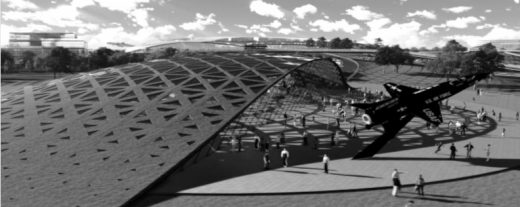
image from the video © AERIAL FUTURES
Houston Endowment International Design Competition News
Houston Endowment International Design Competition News
Museum of Fine Arts Houston Expansion
Architects Shortlist – Steven Holl Architects win
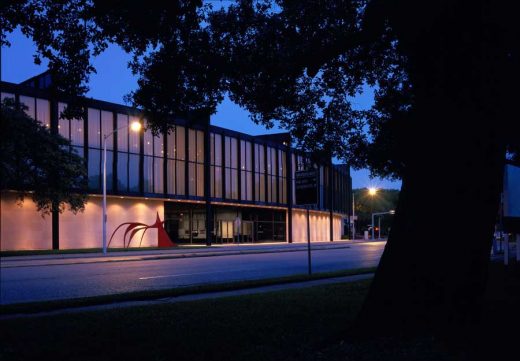
photo © MFAH
Museum of Fine Arts Houston Expansion
Design: Gensler
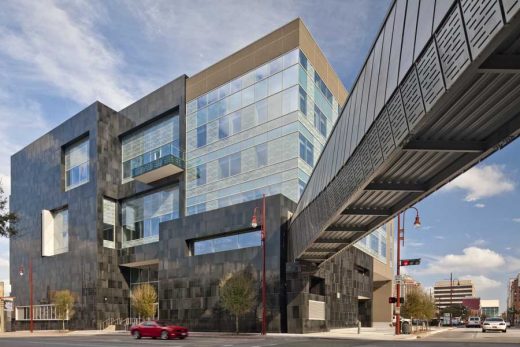
image : Nic Lehoux
Houston Ballet Building
Rice University Dormitories – North College redevelopment
Design: Hopkins Architects
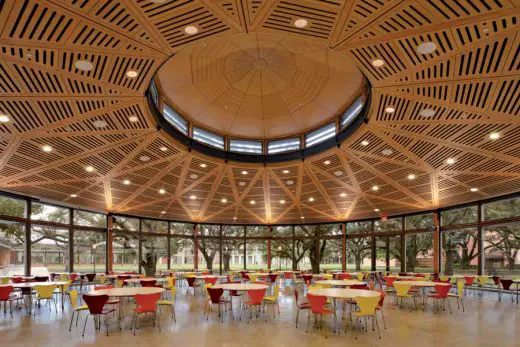
photo © Robert Benson
North College Rice University
Contemporary Texas Architectural Designs
Comments / photos for the The Ralph S O’Connor Building, Houston, Texas building design by SOM – Skidmore, Owings & Merrill page welcome

